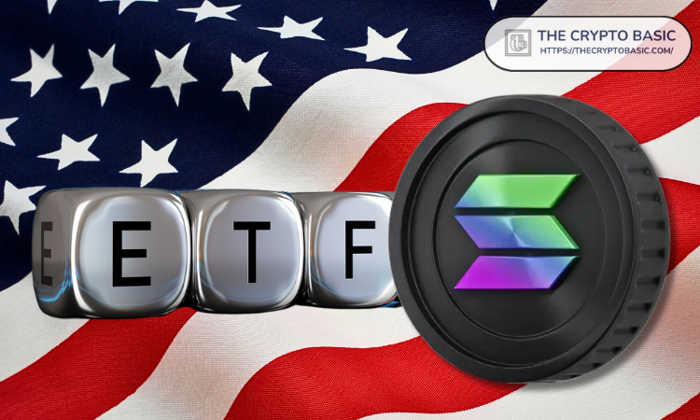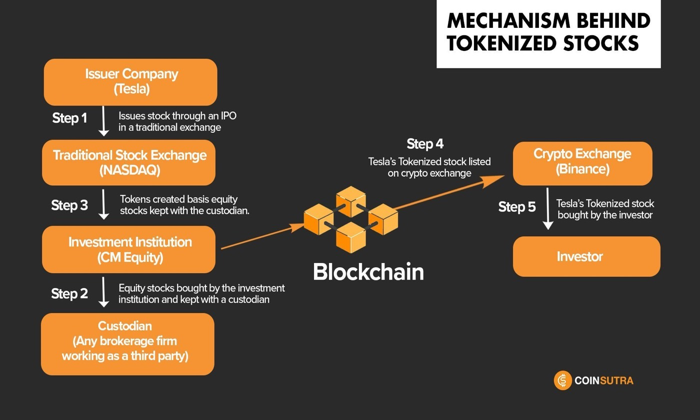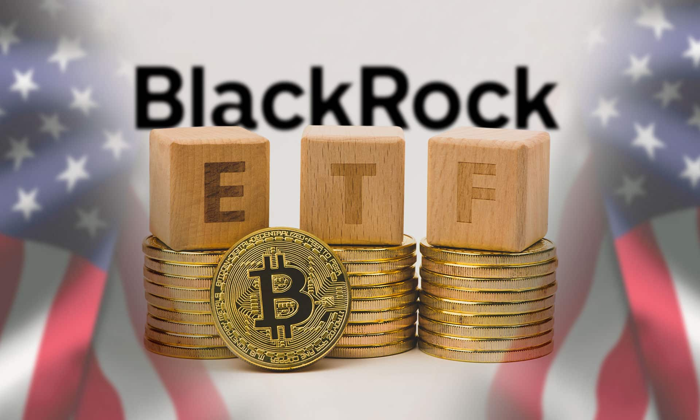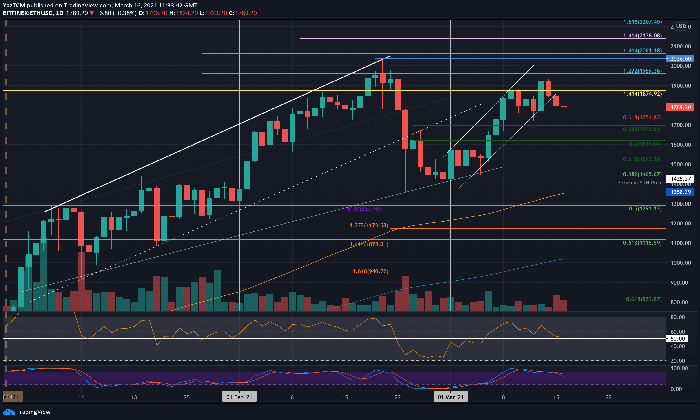The TRX ETF represents an exciting new frontier in investment opportunities, as Canary Capital has recently filed for a groundbreaking exchange-traded fund designed to hold and stake TRX, the native cryptocurrency of the Tron blockchain. This innovative fund aims to not only maintain a stable spot holding of TRX tokens, which boast a substantial market capitalization exceeding $22 billion, but also to enhance returns by generating an impressive annual yield of approximately 4.5% through staking. As interest in crypto ETFs surges, the TRX ETF stands out due to its intention to stake TRX directly from its inception, setting a precedent in the landscape of digital asset management. With the backing of a respected asset manager like Canary Capital, this venture could reshape how investors approach altcoins and capitalize on the burgeoning demand for crypto investment products. As the market evolves, the TRX token may play a pivotal role for investors looking to diversify their portfolios in an increasingly dynamic financial ecosystem.
The recent movement towards a TRX-centric trading vehicle has sparked significant attention within the cryptocurrency sector. Referred to as a staked TRX exchange-traded fund, this initiative led by Canary Capital signals a shift in investment strategies, especially in relation to digital currencies associated with the Tron ecosystem. By focusing on staking mechanisms that promise potential yields, this fund aligns with the growing trend of integrating traditional financial products with the expanding realm of altcoins. With the potential of capturing investor interest in the Tron blockchain and the TRX token, this development highlights an evolving narrative in the world of digital asset investments. As the market adapts, understanding these innovative offerings is crucial for prospective investors seeking to navigate the complexities of crypto ETFs.
Understanding the TRX ETF Landscape
The TRX ETF proposed by Canary Capital represents a significant development in the cryptocurrency investment arena. As the fund intends to hold and stake TRX, a token of the Tron blockchain, it aims to appeal to investors looking for exposure to crypto assets while also providing potential income through staking rewards. Staking TRX offers an appealing annual yield of approximately 4.5%, making it a potentially enticing option for those interested in passive income strategies within the cryptocurrency market.
This move to establish a TRX ETF aligns with a broader trend among asset managers seeking to capitalize on the growing interest in crypto ETFs. With many investors becoming increasingly familiar with the cryptocurrency landscape, the introduction of a TRX ETF could contribute to greater acceptance and investment in alternative cryptocurrencies. However, challenges remain, especially regarding regulatory approvals and market volatility.
The Role of Staking in Cryptocurrency ETFs
Staking is a critical component of the proposed TRX ETF, as it enhances the return on investment for stakeholders. By staking TRX, the ETF can generate additional income streams that traditional investment vehicles do not offer. This approach allows Canary Capital to provide investors not just the value appreciation of TRX but also a regular yield through staking, thereby attracting interest from both crypto enthusiasts and traditional investors alike.
Moreover, staking adds a layer of security and decentralization to the Tron blockchain, which can increase investor confidence in the long-term viability of the TRX token. As the ETF seeks regulatory approval, its unique staking model might face scrutiny, but it also sets a precedent for future crypto ETFs looking to innovate beyond simple asset holding.
Canary Capital’s Competitive Edge with TRX
The focus on staking TRX gives Canary Capital a competitive edge over other crypto ETFs that predominantly hold spot tokens without staking. This distinctive strategy could potentially result in higher yields for investors and positions Canary Capital as a leader in the increasingly crowded ETF market. By blending the benefits of staking with the established popularity of the TRX token, the ETF aims to draw a wide range of investors seeking both stability and potential growth.
While other asset managers have sought approval for staking after launching ETFs, Canary Capital’s proactive approach may resonate with forward-thinking investors. This unique offering underscores the potential for innovation within the crypto investment space, especially as opportunities for staking continue to evolve in the broader context of digital assets.
Regulatory Challenges Facing the TRX ETF
As with any cryptocurrency-related product, regulatory approval remains a significant obstacle for Canary Capital’s TRX ETF. The Securities and Exchange Commission (SEC) has been cautious in approving cryptocurrency ETFs, often scrutinizing the underlying assets and the mechanisms through which they operate. With the unique structure of staking involved in this ETF, Canary must effectively address these regulatory concerns to gain approval.
In a market characterized by rapid changes and regulatory uncertainty, the SEC’s decisions are pivotal not just for TRX but for the entire crypto ETF landscape. The outcomes of ongoing legal discussions regarding major figures in the crypto market, including Justin Sun, will likely influence the future of crypto-exchange traded funds in the United States.
Impact of Market Sentiment on TRX Token and ETF
Market sentiment plays a crucial role in the investment decisions surrounding the TRX token and the prospective ETF. With TRX currently holding a substantial market capitalization, fluctuations in investor confidence can significantly impact its price and demand. Positive news regarding the ETF could lead to a spike in TRX investments, while negative perceptions could hinder the fund’s growth and viability.
Further complicating the landscape are external factors such as regulatory actions and competitive offerings from other asset managers. Investors are closely monitoring the developments at Canary Capital, and their sentiment is likely influenced by broader trends within the cryptocurrency sector, including the performance of major cryptocurrencies like Ethereum and Bitcoin.
The Future of Crypto ETFs and TRX
The future of crypto ETFs, particularly those involving tokens like TRX, appears promising yet uncertain. As traditional investors seek diversification and exposure to digital assets, the success of this TRX ETF can potentially pave the way for further innovations in the space. Should it gain traction, it might encourage more asset managers to explore similar avenues with other altcoins and staking mechanisms.
However, skepticism remains about the long-term appeal of non-core cryptocurrency ETFs. Analysts warn that without broad investor interest, such products might struggle to attain significant assets under management. Therefore, the success of the TRX ETF will not only rely on its potential yields but also on the market’s encompassing attitude towards cryptocurrency investments.
Comparative Analysis of Cryptocurrency ETFs
Examining the proposed TRX ETF against other cryptocurrency ETFs can provide insights into the evolving landscape of digital asset investing. Most current ETFs focus on mainstream cryptocurrencies like Bitcoin and Ethereum, often without integrated staking features. This contrasts sharply with Canary Capital’s approach, which seeks to leverage the unique attributes of the TRX token and the underlying Tron blockchain.
A comparative analysis will reveal the strategic advantages and potential pitfalls of the TRX ETF, notably how its staking mechanism can set it apart from traditional ETFs. If successful, this ETF could pave the way for more adventurous investment products in the cryptocurrency market, inviting enthusiasts to explore altcoins with staking possibilities.
The Significance of the Tron Blockchain in the Crypto Space
The Tron blockchain, founded by Justin Sun, plays a significant role in the cryptocurrency ecosystem. Its focus on scalability and content distribution highlights its utility, positioning the TRX token as a vital component in decentralized applications and digital asset transactions. The blockchain’s proof-of-stake model further aligns with the rise of crypto ETFs, showcasing an innovative approach to earning yields from crypto holdings.
With the backing of a thriving ecosystem and a responsive community, Tron remains relevant amid increasing competition from other blockchain networks. Investors looking into the TRX ETF will recognize the potential impact of the Tron blockchain’s developments not only on the TRX token’s value but also on the overall success of Canary Capital’s ETF.
Investor Perspectives on the TRX ETF
Understanding investor sentiment toward the TRX ETF is essential for grasping its potential success. Many investors are drawn to the allure of staking rewards and the prospect of significant price appreciation in the TRX token. However, traditional investors may remain cautious due to a lack of familiarity with the TRX token and the volatility associated with cryptocurrencies.
As the ETF gains visibility, educating potential investors on the benefits of the TRX token and the unique features of the ETF will be vital. Open discussions and transparent communication can build trust and enhance interest among investors who may be hesitant about entering the cryptocurrency market.
Frequently Asked Questions
What is the TRX ETF proposed by Canary Capital?
The TRX ETF proposed by Canary Capital is an exchange-traded fund that aims to hold and stake the TRX token, the native cryptocurrency of the Tron blockchain. This ETF plans to provide investors with exposure to TRX while generating an annual yield of approximately 4.5% through staking.
How does the staking of TRX tokens benefit the TRX ETF?
Staking TRX tokens within the TRX ETF enables the fund to earn additional yield, enhancing overall returns for investors. Currently, staking TRX offers an annual yield of around 4.5%, making the ETF potentially attractive for those looking for income generation from their investments in cryptocurrency.
What makes the TRX ETF different from other crypto ETFs?
The TRX ETF is distinct because it plans to stake its holdings from the outset, unlike many other crypto ETFs that first seek approval to list spot tokens before requesting permission to stake. This innovative approach may offer unique investment benefits by combining exposure to the TRX token with staking yields.
What are the key features of the TRX token within the Tron blockchain?
The TRX token, integral to the Tron blockchain, is designed for decentralized applications (dApps) and content sharing. Its large market capitalization of over $22 billion and staking capabilities contribute to its significance in the cryptocurrency space, particularly as Canary Capital seeks to leverage it in their proposed TRX ETF.
Who founded the Tron blockchain and what is its significance?
The Tron blockchain was founded by Justin Sun, who is also known for owning Rainberry, the developer behind the BitTorrent protocol. Tron is notable for its proof-of-stake mechanism and focus on decentralized content sharing, which positions it as a key player in the cryptocurrency market, especially with ETFs like the TRX ETF emerging.
What challenges does the TRX ETF face in gaining regulatory approval?
The TRX ETF, like other crypto ETFs, faces scrutiny from regulators such as the SEC, especially in light of past legal issues involving Justin Sun. Regulatory approval can be challenging for funds holding non-core cryptocurrencies, as skepticism remains about their ability to attract significant investment from traditional asset managers.
How do investors benefit from investing in the TRX ETF?
Investing in the TRX ETF offers the potential for capital appreciation through TRX’s market performance, as well as passive income generation via staking yields. This combination could appeal to investors looking for diversified exposure to the cryptocurrency market along with regular returns from staking.
What risks are associated with investing in the TRX ETF?
Investing in the TRX ETF carries inherent risks associated with the volatility of the cryptocurrency market, potential regulatory changes, and the performance of the Tron blockchain itself. Additionally, as a newly proposed fund, it must successfully navigate regulatory approval and market acceptance.
| Key Point | Details |
|---|---|
| Canary Capital ETF Filing | Canary Capital has filed to list an ETF holding TRX, the native token of Tron. |
| Staking Yield | The ETF plans to stake TRX for an annual yield of approximately 4.5%. |
| Market Capitalization | TRX has a market cap exceeding $22 billion, highlighting its significance within the crypto market. |
| Comparison with Other ETFs | Unlike other US ETFs that have sought approval for staking post-listing, Canary’s proposal seeks initial approval to stake. |
| Tron Blockchain | Tron is a proof-of-stake blockchain network founded by Justin Sun, who also owns Rainberry (BitTorrent). |
| Regulatory Challenges | Justin Sun has faced SEC scrutiny over alleged fraud regarding TRX and BitTorrent’s BTT. |
| Industry Sentiment | Skepticism exists over the appeal of non-core crypto ETFs to traditional investors. |
Summary
The TRX ETF proposed by Canary Capital represents a significant development in the crypto investment landscape. By staking TRX, an altcoin with a robust market capital and a promising yield, the ETF seeks to provide investors with unique exposure to the Tron blockchain. However, its approval process poses challenges in a regulatory environment still navigating crypto oversight. As the market evolves, the success of the TRX ETF will depend not only on regulatory acceptance but also on the broader acceptance of altcoin-focused investment products among traditional investors.
The TRX ETF, recently filed by Canary Capital, represents a significant innovation in the world of cryptocurrency investments. By focusing on the TRX token, which is the native currency of the Tron blockchain, the ETF aims to capitalize on the increasing popularity of digital assets and the potential for growth in this sector. Investors stand to benefit from staking TRX, which currently boasts an annual yield of approximately 4.5%. This strategic move opens new avenues for engaging with crypto ETFs, particularly for those interested in alternative cryptocurrencies. As a part of this wave of crypto investment products, the TRX ETF sets itself apart by its commitment to actively stake its holdings, enhancing potential returns for investors.
Canary Capital’s recent filing for an exchange-traded fund focused on the TRX token highlights the growing intersection of traditional finance and cryptocurrency markets. This ETF aims to not only hold the native asset of the Tron blockchain but also to stake it, thereby generating passive income through yield. The initiative reflects broader trends in crypto investment, where asset managers are beginning to explore alternatives beyond conventional stocks and bonds. By tapping into the potential of staked assets, the fund aligns with enhanced futures for digital investments, particularly in the realm of crypto ETFs that seek to attract a wider audience. This unique approach could pave the way for more innovative offerings in the fast-evolving landscape of cryptocurrency.














